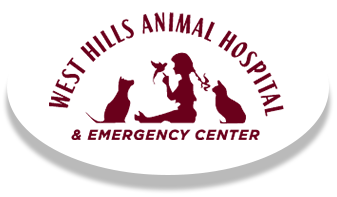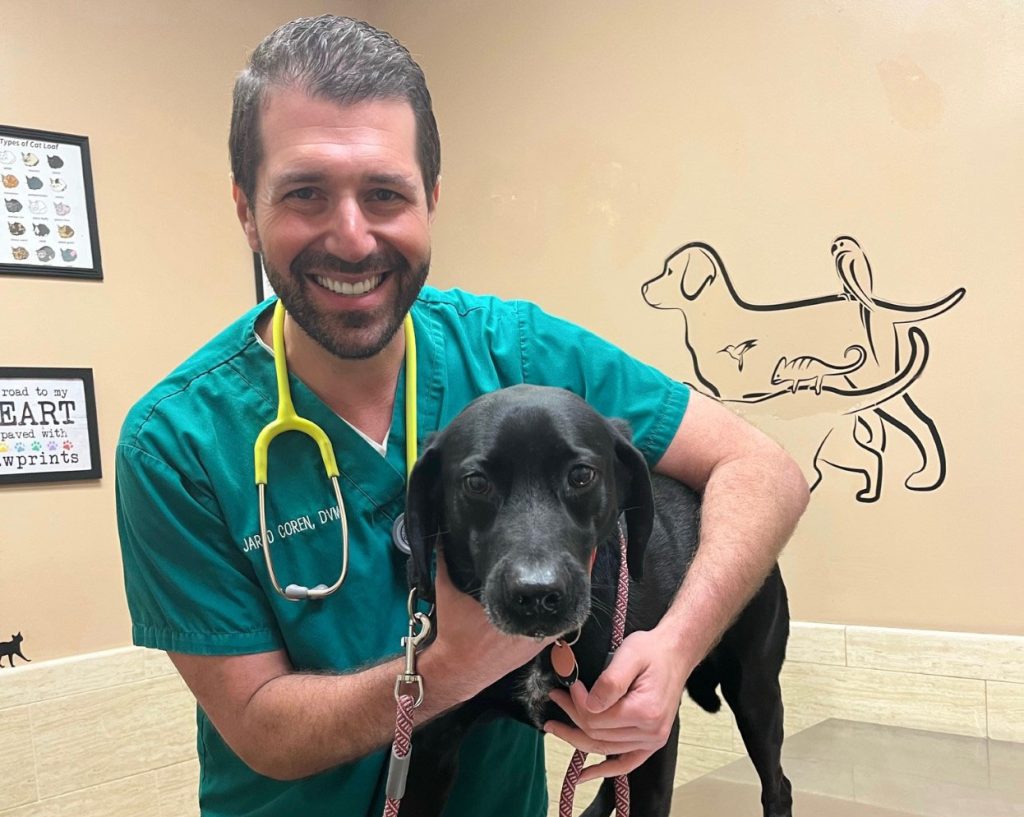Senior Dog Care
The rate at which your dog ages depends upon the size and breed of your dog. Although smaller dogs tend to live longer than larger dogs, they may mature more quickly in the first few years of life. How do you know when your dog is a “senior dog”? A rule of thumb is:
Large and Giant Breeds: Approximately Age 6-8
Medium-sized breeds: Approximately Age 8-10
Small and Toy breeds: Approximately Age 10-12
As dogs age, normal health-related changes occur that can affect their overall health, well-being and comfort. Many illnesses and injuries can be prevented from progressing into more serious conditions when detected early and managed properly. At West Hills Animal Hospital & Emergency Center, our goal is for you and your dog to enjoy the longest, healthiest life together.
We recommend a comprehensive exam at least every 6 months for your senior dog. Depending upon your dog’s age and health, we may also recommend additional testing, such as blood tests and urinalysis. Also, the senior dog exam is a wonderful time for you to discuss any age-related changes your dog may be experiencing or any concerns you have about your dog’s health or behavior with us. Our senior dog wellness package is inclusive.
Because dogs age more rapidly than people, dramatic changes in health can occur in as little as 3 to 6 months. If you notice any of the following signs, we recommend you schedule an appointment to have your dog evaluated:
- Weight loss
- Decrease in appetite
- Bad breath or drooling
- Increased appetite, especially if accompanied by weight loss
- Excess urination
- Increased water intake
- Reduced exercise, increased stiffness, trouble jumping or walking
- Apparent pain when your dog moves or is handled
- Any vomiting, abnormal stool or decreased frequency of bowel movements
- A new lump or growth, especially if it appears to increase in size quickly
- Appearance of a “pot belly”
- Depression or listless behavior
- Excessive panting
- Heavy or rapid breathing when resting
- Coughing
Please call us today to schedule a wellness exam for your senior dog.






